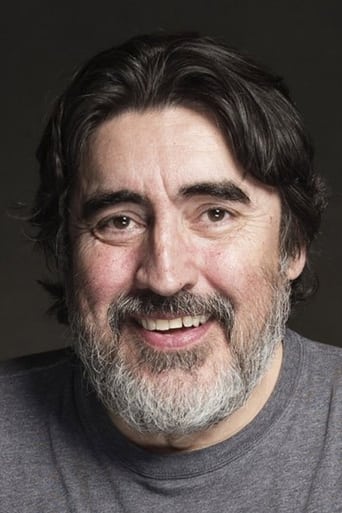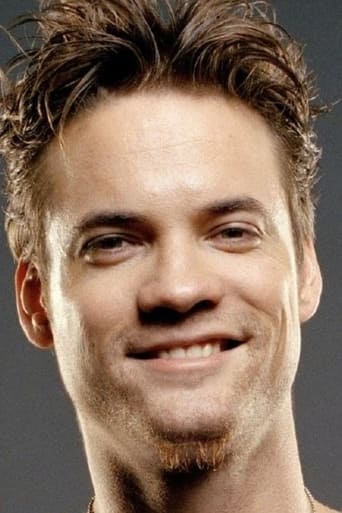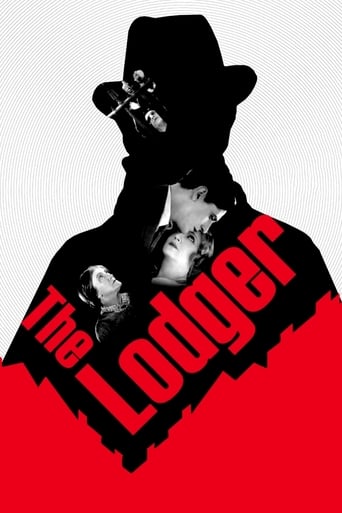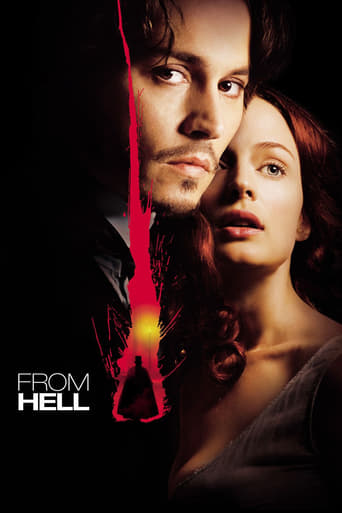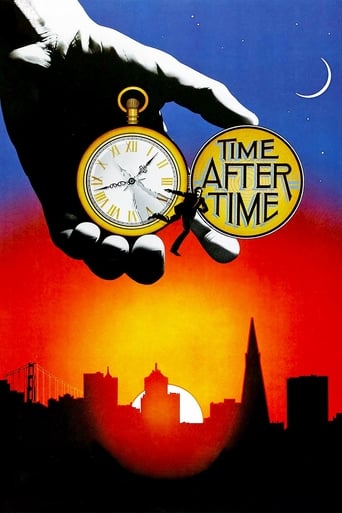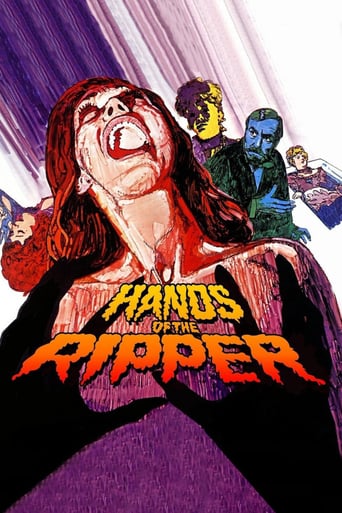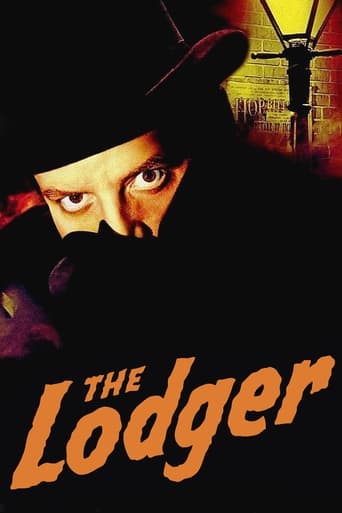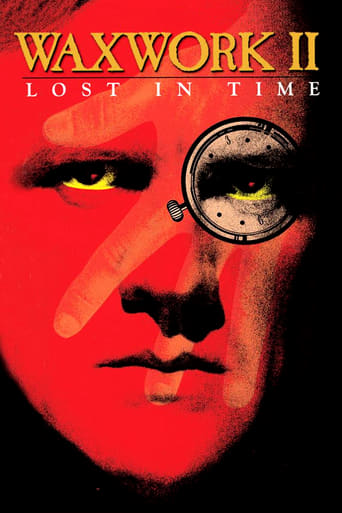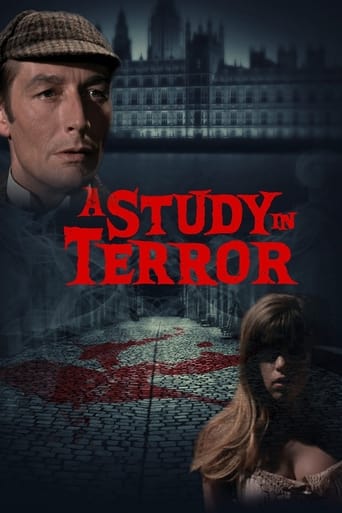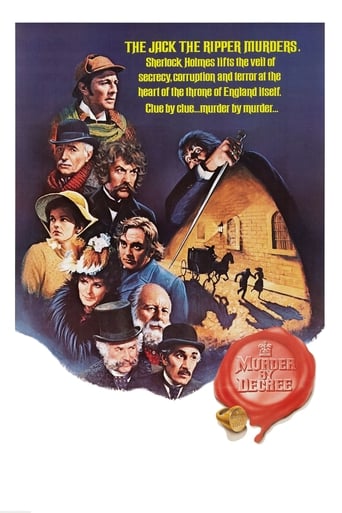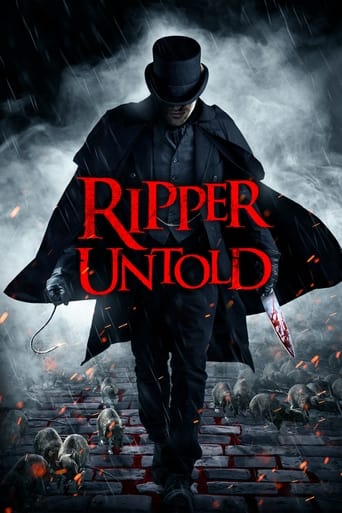
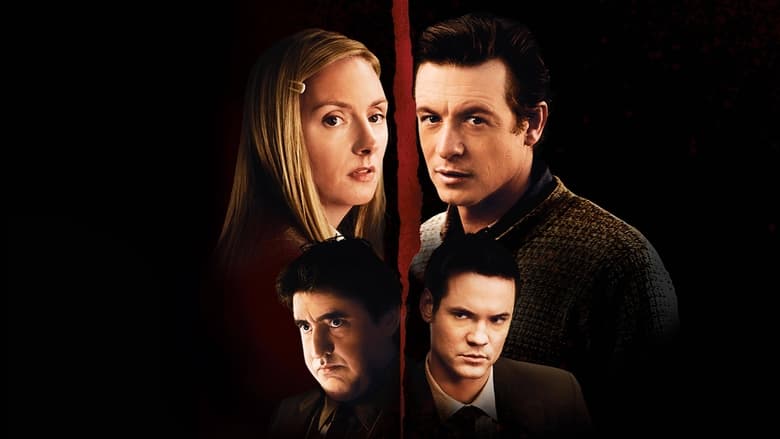
The Lodger (2009)
Follows a seasoned detective on the trail of a ruthless killer intent on slaughtering prostitutes along West Hollywood's Sunset Strip. It appears that the murderer's grisly methods are identical to that of London's infamous 19th century psychopath Jack the Ripper – a relentless serial killer who was never caught by police. To make matters worse, the detective soon notices the parallels between the crimes committed by the West Hollywood stalker and those of a serial murderer incarcerated years ago. Could the wrong man be behind bars?
Watch Trailer
Cast
Similar titles
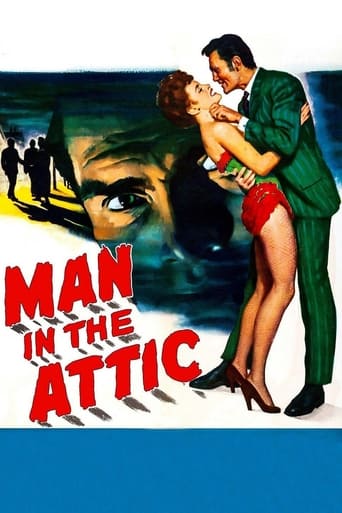
Reviews
Good movie but grossly overrated
It’s an especially fun movie from a director and cast who are clearly having a good time allowing themselves to let loose.
Fun premise, good actors, bad writing. This film seemed to have potential at the beginning but it quickly devolves into a trite action film. Ultimately it's very boring.
Watching it is like watching the spectacle of a class clown at their best: you laugh at their jokes, instigate their defiance, and "ooooh" when they get in trouble.
Writer director, David Ondaatje puts a new spin on the Marie Belloc Lowndes' story, which has been filmed a number of times before, most notably by Alfred Hitchcock and John Brahm.Although the basics are there, the story has shifted to modern day West Hollywood, which is in the grip of a serial killer emulating the Ripper killings of 1880's London. When a lodger, (Simon Baker) rents a secluded room from a couple, Ellen and Joe Bunting (Hope Davis and Donal Logue), near where the killings have taken place, our suspicions immediately fall on him.However the movie shifts the suspect focus around. Chandler Manning (Alfred Molina), the detective who investigates the case, has a few secrets of his own, as do the Buntings. As the murders keep happening, Ellen Bunting becomes dangerously attracted to the lodger. Ondaatje brings a psychological twist to this retelling because we are never sure if Ellen is merely imagining the lodger. The film has a surprise ending - clever, but maybe a little too clever.The film updates the story; we didn't need a straight remake - Hitchcock's silent version did it well with that famous glass ceiling shot of the lodger pacing his room, and John Brahm did a classy job with the 1940's remake starring Laird Cregar. Another period piece just wouldn't have cut it.Although the movie works pretty well for the most part, and is made with care, Ondaatje overdoes the Hitchcock homage - it didn't need it. Surely we are past the point, thanks to Brian De Palma and others, where deliberate references to the Hitchcock touch are remotely fresh or novel. Here we have the telescoping camera technique from "Vertigo", the emphasis on the word knife from 1929's "Blackmail", and at least half-a-dozen others. They are in-jokes that detract from the story.Simon Baker brings some of his "Mentalist" charm to the role and is a disarming villain - if he is indeed the villain. Alfred Molina and Hope Davis deliver powerful performances: he as the conflicted detective, and she as the conflicted wife of a husband who also seems to have another side to his character.The performances save the film. The lodger works well enough for what it is, but I don't think there is much danger of it replacing the Hitchcock or Brahm versions in the memory of anyone who has seen them.
Serial killers will always be popular because there is a human fascination with the lurid, the sexual and the violent. They epitomize fear, and when making a movie about a copycat serial killer, who better to imitate than the most notorious serial killer of all time, Jack the Ripper? "The Lodger" represents the fourth version of the book by Marie Belloc Lowndes, including one directed by Alfred Hitchcock himself. Although it's nowhere near as good as anything the Master of Suspense put out, it is nonetheless an engaging and twisty mystery.There are two stories that are at the center of the film, and as the story goes on, they become entwined. First is the story of two detectives, Chandler Manning (Alfred Molina) and Street Wilkensen (Shane West) who are on the trail of a killer who is imitating Jack the Ripper in West Hollwood. Second is the story of a landlady, Ellen Bunting (Hope Davis) who is curious about her new tenant, the attractive but aloof Malcolm (Simon Baker). There are a few subplots thrown in for good measure, but really, these are the only ones that matter.Actually, that's the film's biggest problem. Writer/director David Ondaatje pads the film out, particularly in the first hour. While this helps camouflage the story's red herrings, the subject matter he includes is rather dull. The soundtrack is also uneven. For the most part, it's a solid and effective homage to the creepy music that one always finds in these sorts of movies. However, there are times when it doesn't work, and instead becomes, of all things, melodramatic! The acting is good all around, though. The cast is predominantly made up of character actors on the edge of stardom. Alfred Molina has worked his way up the ladder for the past 25 years, and is just now earning the top-billing he so justly deserves. Manning is a hard boiled detective with a temper. Molina is no Sam Spade, but I'm glad that the producers took a chance on casting an unusual choice, because Molina is always interesting. His co-star, Shane West, tries to shed his bad-boy image, and while no standout, he's not bad. Indie film favorite Hope Davis is also making headway into mainstream fare, and she's terrific as the mousy Ellen. This was clearly a chance for Simon Baker to cash in on his popularity from his show, "The Mentalist." I haven't seen that, but he caught my attention in the underrated "The Affair of the Necklace." Baker is excellent as the seductive lodger; we can see his soft-spoken charm, but there is always an aura of danger around him, and we can never fully trust him. Also on hand are the always reliable Philip Baker Hall, Rebecca Pigeon (aka Mrs. David Mamet) and Donal Logue (who, like West, is an ER alum). Hall and Pigeon are solid, if underused, but Logue is flat as Ellen's jerk husband.The film is always interesting to look at. Most noirs of this ilk used black and white film to their advantage, but this is 2009, and the film has to make money (which is surprising coming from an indie film). However, Ondaatje uses the color to his advantage. The noir feeling is still there, but it has an interesting feeling of warmth. And I loved how he and his cinematographer David A. Armstrong filmed the rain; it's just like the golden oldies.It may not be Hitchcock, but this mystery is still pretty good. We don't know the true identity of the killer until the end, and while there are two main suspects, we also know that we can't rule anyone else out either, which makes things more interesting. And for a movie with no CGI, it's always interesting to look at. And watch.
Marie Belloc's novel, serves once again as the basis of this 2009 treatment that doesn't go anywhere. Partly, the fault lies with the treatment of its well intentioned writer/director, David Ondaatje. His inexperience, perhaps, was the factor that this movie probably went into DVD right away, as it appears the commercial run didn't go anywhere since it must have come and gone without much publicity, or word of mouth.The locale of the story has been changed from London to a rainy Los Angeles, seen mostly at night. The serial killer who is killing prostitutes in a seedy part of town is following in the steps of Jack the Ripper, the famed English killer. This sick man finds digs in what appears to be an uninhabited garage in the back of a house that has seen better days. The mysterious lodger catches the landlady's fancy; this woman is stuck in a bad marriage. She looks as though she is not dealing with reality, but the attraction the new renter has upon her proves to be too much.When the dead women begin to surface, detective Chandler Manning has to face guilty feelings because the present killer has the same M.O. as the man he has sent to the electric chair a short time before. Manning has a suspicion the murders follow the same logic as the ones committed almost a century ago in London. His obsession gets the best of him, making him lose perspective.The picture fails because the way Mr. Ondaatje presents the story. There is no suspense in most of the action. If the viewer happens to be a fan of the genre, he would notice things that will spoil the fun for him. The director doesn't create enough atmosphere to do justice to what he tried to do.The talented cast is totally wasted. Alfred Molina and Hope Davis are excellent actors, but the way they were asked to portray their characters is not believable. For one, the detective of Mr. Molina, or the vapid landlady of Ms. Davis, will not add anything to their brilliant careers.
"The Lodger," now on DVD develops a storyline involving a tenant living with a lonely landlady and serial killings in the West Hollywood area of Los Angeles. The film seems to involve two separate stories, with different characters who meet in the final climactic finish; however, no closure is given to the story as the killer within "The Lodger," escapes capture. Alfred Molina, the lead in the film begins the story at the scene of a grisly murder and the picture revolves mostly around this character's attempts at tracking down an anonymous serial killer. The settings are primarily shot in the downtown Los Angeles area with several scenes from an urban neighbourhood contrasting the busyness of the city. The characters and lives of Detective Manning (Molina) are given an early initial reveal while the back stories of the landlady and the lodger are not given even a partial reveal until midway into the film. Near the end of the film the life of the lodger is given a partial reveal, which seems slightly disappointing.The original musical score that haunts the picture throughout really adds an entire dimension to the film that enhances the movie watching experience. The soundtrack begins early in the film, subtly and hovers in the background during many of the scenes. Composer John Frizzell produces an excellent composition that adds to the overall intensity of the film while highlighting certain climactic scenes. The musical score, while not taking center stage in the film makes "The Lodger," a more fulfilling visceral experience.Lighting, acting, and story development are each well done, but director David Ondaatje's use of Los Angeles city streets, in fast forward mode seems overly mysterious in tone. The movie begins with a CGI image of blood, in veins that transforms into the city streets of Los Angeles, and during the film several shots of traffic moving exceptionally fast break up the pacing within "The Lodger." Possibly symbolic of the transitory nature of the killer the streets of Los Angeles are shown throughout the movie to ease the pacing at certain key points in the film. As well, overhead shots of the sky, with clouds are meant to show the transition of time, but their symbolic interpretation seems ambiguous. On the acting side the portrayal of Rachel Leigh Cook as a somewhat distraught, lonely housewife is done with subtly and a flair for the under dramatic, that keeps the viewer's attention on the believability of the story. Other actors including; Alfred Molina as an over-worked detective, and Donal Logue as a potential suspect are especially well done and deliver realism to the story. In addition, the lighting, which takes place primarily in natural daylight, gives "The Lodger," an eerie feel as shots of alleyways and streets are shot in partial darkness.Director David Ondaatje, nephew of writer Michael Ondaatje delivers a strong film, surprisingly after only directing two previous feature films. Ondaatje switches often between the use of stead-cams and a hand held 35mm to display various shots of the Los Angeles landscapes and characters within the film. Often using medium shots at the beginning of a scene and then slowly rotating left or right as the director moves in for a close-up, Ondaatje's manages to keep the visuals interesting while keeping character interactions short. Many of the dialogue scenes between the landlady and tenant are kept to less than a minute, and often to less than thirty seconds. The quick changes between scenes and characters can be somewhat distracting, but Ondaatje is quickly moving the story along as the killer's vile habits are slowly given a reveal. Focusing on the killer's view or a knife blade the killer utilizes a mysterious quality, which while frustrating at times does manage to make the film slightly more intense. Another directing quirk from Ondaatje seems to be his love for filming feet as several frames are shot exclusively of women's feet and rarely of the killer's.The sets, actors, and filming techniques each do their part in delivering an excellent psychological thriller, that while overly sparse on the action scenes manages to hold the viewer's full attention throughout. The light musical compositions along with experienced actors are a bonus and both elements are able to develop a very intriguing story that delves into the motivations of a serial killer. "The Lodger," from relatively new director David Ondaatje does not give closure to the story, but the film, overall is very entertaining to watch.7 Creepy Skulls out of 10.
